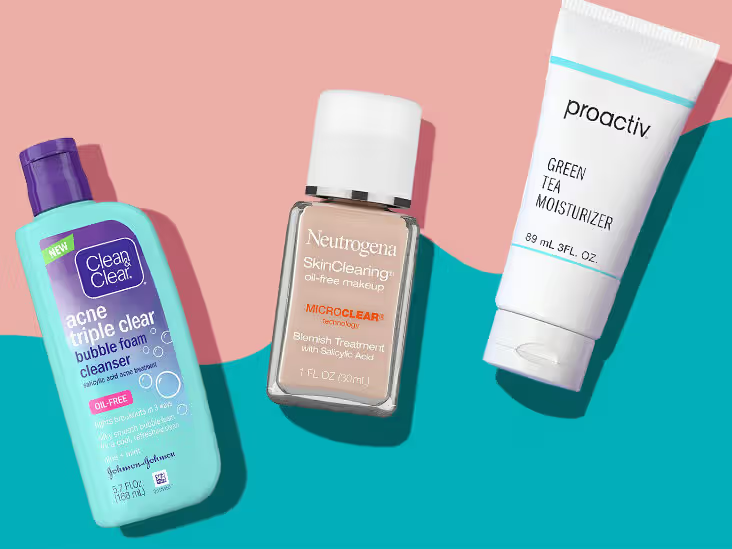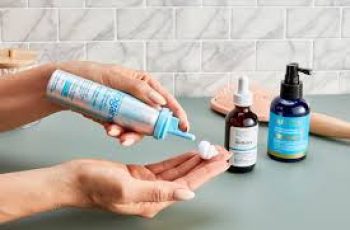
### Can Salicylic Acid Cure Acne?
Salicylic acid is a well-known, effective ingredient for treating **acne**, especially for those with oily and acne-prone skin. While it may not “cure” acne in the sense of offering a permanent solution, it can significantly **help manage and reduce acne breakouts** over time, especially when used consistently as part of a skincare routine. Let’s dive deeper into how salicylic acid works and how to get the most out of it for acne treatment.
### How Does Salicylic Acid Work on Acne?
Salicylic acid is a **beta hydroxy acid (BHA)**, which means it’s oil-soluble, allowing it to penetrate deep into pores to **clear out excess sebum, dirt, bacteria, and dead skin cells**. This is crucial because clogged pores are the primary cause of acne.
Here’s how it works:
– **Unclogs Pores**: By exfoliating inside the pore, salicylic acid helps prevent the formation of comedones (whiteheads and blackheads), the primary building blocks of acne.
– **Reduces Inflammation**: Salicylic acid has anti-inflammatory properties that help calm and reduce redness and swelling around pimples.
– **Promotes Skin Renewal**: It accelerates the shedding of dead skin cells from the surface, helping to prevent new breakouts by keeping skin clean and smooth.
### Can Salicylic Acid Cause More Acne?
It’s possible to experience **initial worsening** of acne when you first introduce salicylic acid into your routine. This is often referred to as the “purging” phase. Here’s why:
– **Purging**: Salicylic acid works by bringing underlying impurities to the surface of the skin, so you might see an increase in breakouts for a short period as the acid clears out blockages. However, this should subside after 2-4 weeks as your skin adjusts.
That being said, there are a few other reasons why salicylic acid could potentially cause more breakouts:
– **Wrong Concentration**: If you’re using a product with too low or too high a concentration of salicylic acid, it may not be effective or might irritate your skin, worsening breakouts.
– **Overuse**: Using salicylic acid too frequently, especially if your skin isn’t accustomed to it, can lead to dryness or irritation, which can exacerbate acne. Always start slowly and gradually increase use as your skin builds tolerance.
– **Incompatible Formulations**: Salicylic acid might not be suitable for all skin types or for everyone, especially if you have sensitivities or use other potent actives (like retinol). If it’s not working for you after several weeks, it might be time to switch to another treatment.
### How Long Does It Take for Salicylic Acid to Work?
You might see **initial improvements** within a couple of weeks, but for **visible changes** in acne and skin clarity, it typically takes about **4-6 weeks** of consistent use. This timeframe allows salicylic acid to effectively clear out pores, reduce breakouts, and improve the overall texture of your skin. If you see no improvement after about 6-8 weeks, it’s worth considering alternative treatments or consulting with a dermatologist.
### Can You Use Salicylic Acid Every Day?
Once your skin develops a tolerance to salicylic acid, it’s generally safe to use it **daily**. However, it’s important to start slow:
– **Begin with 2-3 times a week**, especially if you’re using it in stronger formulations (like 2% salicylic acid).
– Gradually increase the frequency as your skin adjusts to avoid irritation, which can lead to redness, dryness, or peeling.
If you’re using it daily, ensure you apply **sunscreen** during the day because salicylic acid can make your skin more sensitive to UV rays, increasing the risk of sun damage.
### Is Salicylic Acid Good for Acne Scars?
Yes, salicylic acid can help improve **hyperpigmentation** and reduce the appearance of acne scars. Since it exfoliates the skin, it helps to remove dead skin cells and promote the turnover of fresh, healthy skin, which can make **dark spots** and **acne scars** less visible over time. However, it may take longer to see results in scar reduction compared to active treatments like **chemical peels** or **laser treatments**, which target pigmentation more intensely.
For best results, consider combining salicylic acid with other treatments aimed at **brightening** or **skin resurfacing**, such as products with **vitamin C**, **niacinamide**, or **retinoids**.
### Which Acid is Best for Stain Removal?
While salicylic acid is excellent for treating active acne and preventing new breakouts, for **stain removal** or **hyperpigmentation**, other acids may be more effective:
– **Glycolic acid (AHA)**: A better option for improving skin texture and fading dark spots since it works on the surface level of the skin and stimulates collagen production.
– **Lactic acid (AHA)**: Also great for brightening the skin and improving skin tone.
– **Mandelic acid**: A gentler AHA, ideal for those with sensitive skin looking to target pigmentation and texture issues.
Salicylic acid works best for **active acne**, while AHAs (like glycolic and lactic acid) are often preferred for **hyperpigmentation** and improving skin texture.
### Conclusion: Can Salicylic Acid “Cure” Acne?
While **salicylic acid** is highly effective at **treating** and **managing** acne, it may not “cure” it permanently. Acne is a complex condition influenced by factors like hormones, genetics, diet, and lifestyle, so while salicylic acid can **significantly improve** your skin and help clear up acne, it may not be a complete solution on its own.
That said, salicylic acid remains one of the best **preventative treatments** for acne, especially for those with **oily, acne-prone skin**. Consistent use, along with other acne-fighting ingredients (like benzoyl peroxide or retinoids), can help keep breakouts under control, reduce scarring, and improve overall skin texture.
For persistent or severe acne, it’s always a good idea to consult with a dermatologist for tailored treatment options, which may include oral medications, professional chemical peels, or other therapies that complement salicylic acid.


